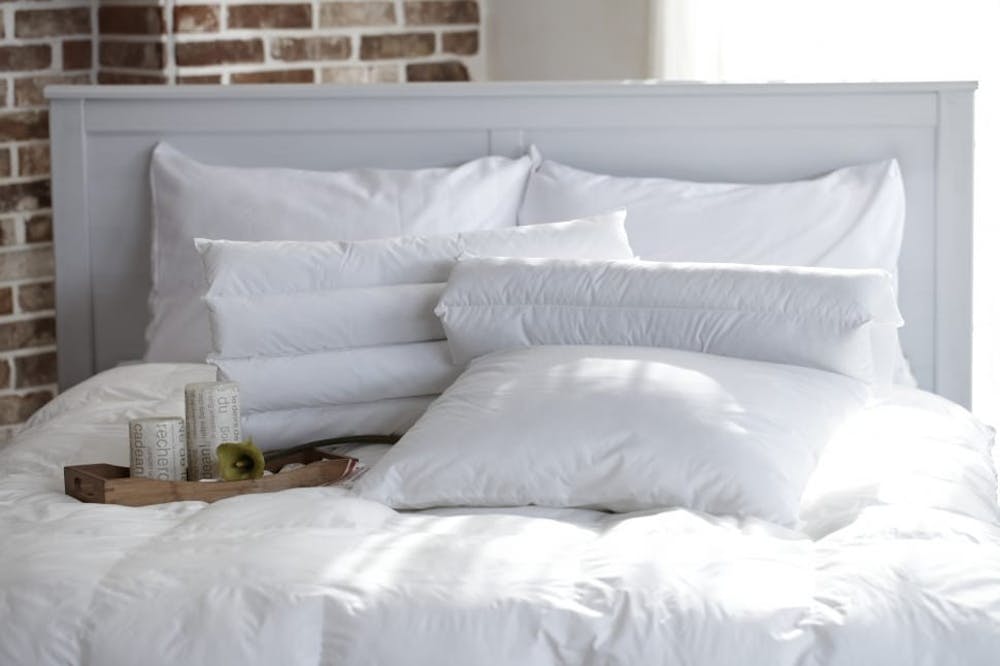It’s 2 a.m. and you’re starting to do that thing where you fall asleep in 10 second intervals before waking up and rereading the same paragraph of your textbook, then falling asleep again somewhere in the middle of it. Your task list sits next to you, a laundry list of assignments and reminders that haven’t been checked off yet. Five more minutes, you think, I just need to finish this chapter.
Research by the American Academy of Sleep Medicine (AASM) shows that an increasing number of college students don’t get enough sleep, which ends up hurting their grades. Lawrence Epstein, a medical specialist in sleep medicine at the Division of Sleep and Circadian Disorders in the Brigham and Women’s Faulkner Hospital, discussed sleep and performance in an article by AASM.
“After two weeks of sleeping six hours or less a night, students feel as bad and perform as poorly as someone who has gone without sleep for 48 hours,” he wrote.
Additionally, lack of sleep can cause anxiety, a loss of creativity and can make you more prone to hallucinations.
According to the National Sleep Foundation, lack of sleep also spikes your ghrelin levels, making you more hungry for high-calorie foods like cookies and chips. This can lead you to put on more weight.
According to Scientific American, sleep charges up the cells of our body, clears waste from the brain and helps us learn and remember things better. The seven to nine hours of sleep a night recommendation is well-documented in scientific literature, and most college students already know they need to be getting more sleep.
However, a host of commitments, classwork, papers and more can make sleeping for so many hours a Herculean task. While getting nine hours a night may not be practical during the school year, there are ways to sleep more effectively.
Naps are great for short bursts of alertness and focus. Keep your nap length at either 20-30 minutes, or give yourself a full REM cycle with a 90 minute nap.
If you sleep longer than 30 minutes, your body starts entering deeper stages of sleep. Waking up in the middle of a deeper sleep phase leaves you feeling worse than when you first went to bed.
Also, if you really need some focus, try a caffeine nap, recommended by Psychology Today and The Washington Post. Quickly drink coffee, then immediately nap for 20 minutes. When you wake up, the caffeine should just about kick in, giving you a great boost.
Additionally, according to the National Sleep Foundation, maintaining a sleep routine is extremely important to feeling more awake even on a shorter sleep schedule. Try to sleep and wake up at the same time everyday and do your best not to sleep in on the weekends.
When you go to bed, don’t reach for your phone or laptop. According to the Harvard Health Letter and several other sources, electronic devices emit blue light, which disrupts melatonin production. This makes it difficult to fall asleep. If you have trouble falling asleep, ask your doctor about taking melatonin in alternate forms.
In an interview with The News-Letter, Dean of Student Life Smita Ruzicka noted the importance of keeping up a healthy lifestyle during finals season.
“It is critical for students to get enough sleep during finals time in order to get enough rest and be recharged. Getting enough sleep as well as eating regular and healthy meals can have a positive impact on students’ ability to concentrate and retain information needed in order to study effectively,” she said.
Eventually, you will have to make a trade-off between studying more or going to sleep. To minimize the costs of sacrificing one for the other, consider analyzing times when you are most productive and times when you are least productive. If you work better in the morning, schedule fewer commitments then and set aside some work time. Additionally, if it is late in the evening and you are no longer being productive, consider going to bed instead of trying to finish the task you’re working on.
For Hopkins students during finals period there is another practical benefit of sleeping early and waking up early. Spots in the library and Brody essentially fill up by 10 a.m., so if you want the best chance of nabbing your favorite seat in the library and perform optimally, get your sleep!





